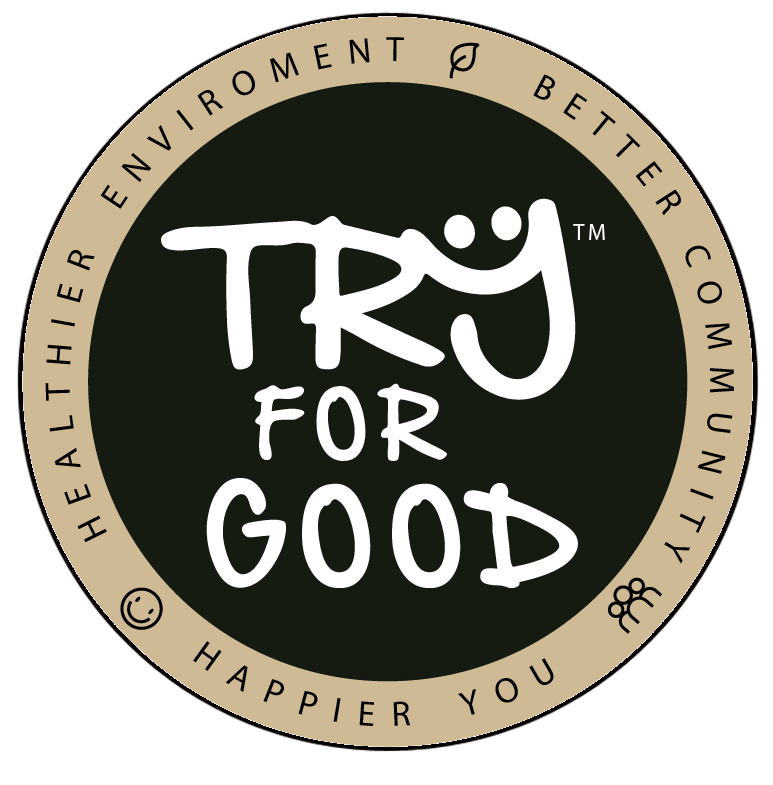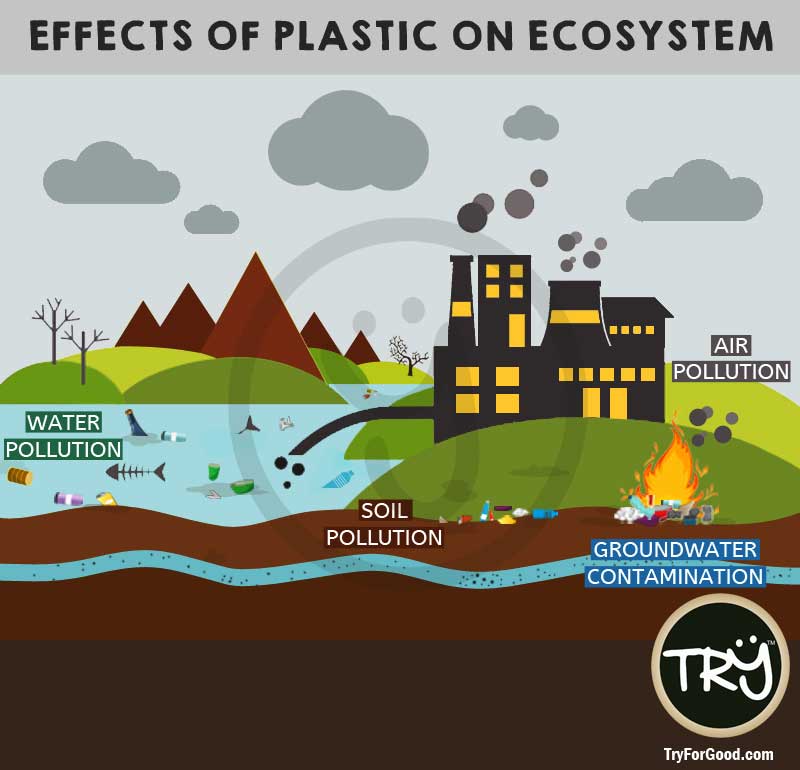Our ecosystem is a gift from nature to us. It has given us various resources like water, soil, air which makes our survival possible on earth. Unfortunately one of our own discovery of plastic has become a reason to spoil our ecosystem significantly. It has many adverse impact on both living and non-living organisms. Some of them are listed below:
- Land pollution: Most of the plastic waste is dumped into landfills. When it comes in contact with water they produce many toxic and hazardous chemicals which affects soil fertility. The emission of toxic and foul gases from landfills pollutes the environment and causes major health issues on humans as well as animals.
- Water pollution: Water bodies are getting polluted due to tonnes of plastic garbage being dumped into rivers, oceans, lakes, streams etc., which is making aquatic life miserable. Marine animals like turtles, fish, seabirds, otters and other species swallow these plastic waste that leads to their premature death. In the rainy season leftover plastic mostly flows to groundwater which intoxicates drinking water and causes soil erosion.
- Air pollution: Burning plastic increases the risk of heart disease, respiratory problems such as asthma and emphysema, skin problems like rashes, allergies and harmful toxins in air can damage nervous system also.
- Effect on food chain: Plastic affects even the smallest living species like planktons (the small and microscopic organisms drifting or floating in the sea or fresh water).When these organisms become poisonous due to plastic consumption, this causes difficulties for the bigger animals that depend on them for food.
- Economical effect: It costs lots of money to clean affected areas, and it also causes loss of life of plants, animals, and people living in those areas.
- Health Hazards: Artificial plastic is made of many toxic chemicals. So whether it can be air, water, soil anything whatever comes in contact with this plastic causes major health problems for both animals and humans.
Source: www.conserve-energy-future.com/
www.advocacy.britannica.com/


